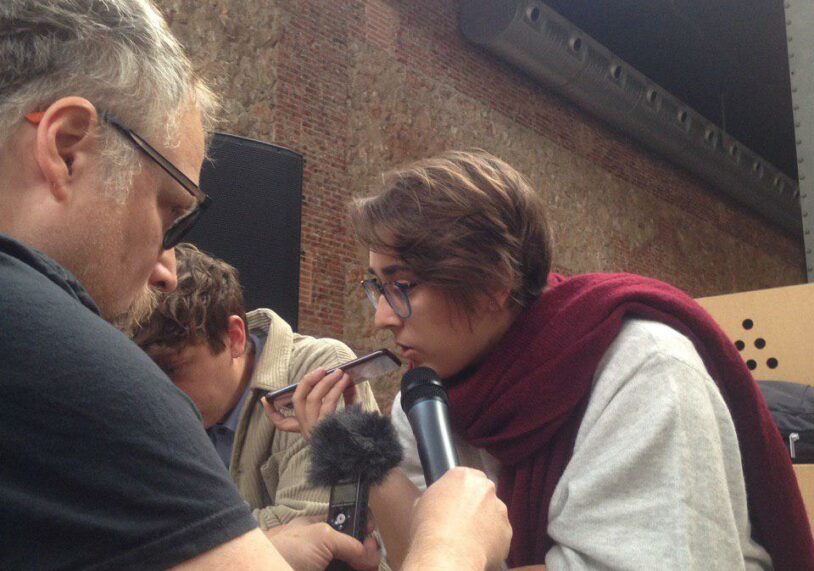Freeport 1: Signals & Storms
[2019]
Freeport was a one week programme occured during the Tentacular Festival (November 2019 in Matadero Madrid, Spain).
The course was led by the collective Geocinema (Solveig Suess and Asia Bazdyreva), and was curated by Bani Brusadin.
The outcomes of the course were mere prototypes, just exercises, but the concepts developed supposed a leverage point to me for the subsequent projects:
Trinitite Memories

How is it possible that in the National Geomining Museum of Spain there is not a mention to the Anthropocene at all?
A place meant to keep and preserve the History of global Geology is obviating the most recent geological agent: the human beings.
The mineral that embodies this questions perfectly is the neofossile Trinitite, naturally created during the detonation of the first nuclear bomb in the desert of New Mexico.
To discover and challenge the rigid procedures concerning the collections of the Museums, whether they knew or not Trinitite’s existence and their possible interest to get a sample, we performed a live call to the Museum’s director.
To our surprise, she didn’t know the mineral. Conversations continued via email. They were willing to accept a donation of a Trinitite’s sample.
Will there be a moment in which artists infiltrate the Anthropocene to the Geomining Museum?
*
TEAM
Maryna Khrypun, Pablo de Soto, Collin Rosatti, Michael Straeubig, Nuno de Vicente, Daniel Urrea and Victoria de la Torre
Inhale / Exhale

How do infrastructures conditionate our existence within the urban ecosystem? Which urban realities remain invisible to us because of the halo of quotidianity that surrounds them?
With the Madrid Metro network as the stage, we imagined urban infrastructures as powerful autosufficient organisms that need humans to survive. Humans as a resource, as flesh, as labor, as capital, but not as individual beings. Using our smartphones as recorders for sounds and footage, we analysed collectively the city public transportation infrastructures to reveal the coreographies users-resources follow when entering the system. A system where humans leave apart their individuality to be just another cell of an organism in exchange of its services.
In this alternative narrative, a question is thrown: who serves who; are this infrastractures we created serving us, or is it us who are serving them?
Humans dehumanized in service of (de)humanized systems.
*
TEAM
Leon Spekken, Silvia de Marta, Miguel Ángel Calderón, Victoria de la Torre